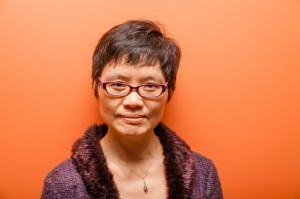Out of Asia: Topologies of Racism in Canada
Jennifer Chan
ABSTRACT: This case study recounts my harrowing experience through a great Canadian equity swindle—involving two internal university equity investigations, BC Human Rights Tribunal, and the BC Supreme Court—to bring to account a deeply flawed and allegedly discriminatory academic hiring process. I situate my human rights complaint in the larger socio-political context of Canada becoming “too Asian.” Download the article from Workplace: A Journal for Academic Labor.
For the background, chronology, and case records, see our coverage in the Workplace blog. Briefly:
BCHRT’s decision on 24 January 2012 to hear the Chan v UBC and others [Beth Haverkamp, David Farrar, Jon Shapiro, Rob Tierney] case (21 December 2010 HRT decision; 24 January 2012 HRT decision) was moved to the Supreme Court for a judicial review (see The Ubyssey’s [UBC student newspaper] feature article for the backstory to the case). The Supreme Court then ordered the BCHRT to review its initial decision (29 May 2013 BC Supreme Court judgment). The BCHRT turned and dismissed the case on 19 December 2013.
- December 2009 Complaint filed to University
- 21 December 2010 BC HRT decision
- 24 January 2012 BC HRT decision
- 29 May 2013 BC Supreme Court judgment
- 19 December 2013 BC HRT dismissal
- 1 March 2015 Dean announces Review of Chair (no Report was produced)
- 1 April 2016 Dean announces search for David Lam Chair (Associate Dean Haverkamp appointed Chair of Search Committee again). Announcement that Chair was “recalibrated.”*
*Note: Exactly what was “recalibrated” through the “Review” is unclear. Comparatively, when advertised in 2005 and 2009, the Name of the Chair was the “David Lam Chair in Multicultural Education.” The April 2016 Ad or CFA still indicates the same. So the Chair title was not recalibrated. In 2005 and 2009, the search sought scholars who contributed to multicultural education and now in 2016 the search seeks scholars who contributed to multicultural education and “social justice studies” so that was not recalibrated. One could readily argue that multicultural justice and social justice are interchangeable. In 2005 and 2009 multicultural education was not defined but in 2016 a definition of multicultural education is given: “commitment to anti-oppression, anti-racism, intersectionality, and decolonization.” But that does not appear to be a recalibration inasmuch as it just gives a definition.

 Follow
Follow